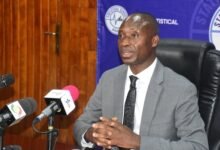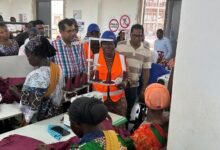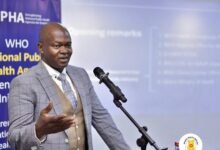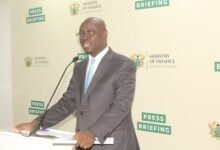
The Government, in collaboration with the United Nations Development Programme (UNDP) and United Nations Industrial Organisation (UNIDO), yesterday launched in Accra a $6.3m project to minimise the use of mercury in mining.
The “PlanetGold Project” is meant to make small-scale gold mining safer, cleaner, and more profitable in the country.
On the theme ‘Advancing formalisation and mercury-free gold in Ghana’, it is being implemented by the Environmental Protection Agency (EPA) in partnership with UNDP, UNIDO and Global Environmental Facility for a five-year period spanning 2022 to 2027.
The implementation of the project is expected to minimise the risks posed by mercury use in the Artisanal and Small-scale Gold Mining (ASGM) sector by ensuring sound chemical management and eliminating pollution hazards.
Speaking at the launch, the Executive Director of EPA, Dr Henry Kwabena Kokofu, said the project would strengthen national and jurisdictional capacity to enhance Ghana’s compliance with the Minamata Convention, in accordance with national environmental policies, to support global platforms on mercury reduction, responsible supply chains and mineral resource governance.
He said the ASGM sector had witnessed consistent growth over the years, contributing about a third of the country’s total gold production, and substantially giving financial support to the economy.
The EPA executive director said the sector was still largely an informal one and was characterised by significant environmental pollution and degradation, which emanated from the use of unsafe chemicals such mercury in mining.
Dr Kokofu said even though the project could not start last year as scheduled, the implementation period would not change.
He noted that the project had come at an opportune time to improve the management of chemicals and eliminate pollution hazards, while improving financial inclusion and transition into the formal economy.
Dr Kokofu said the project was focused on “optimising formalisation through jurisdictional approaches, accelerating financial inclusion and responsible supply chains, enhancing the uptake of mercury-free technologies, fostering knowledge sharing and local capacity building support.”
“I would like to first express my sincere appreciation to our development partners for keeping faith with Ghana in our quest to put in place sustainable programmes and strategies for the implementation of the chemical-related multi-lateral agreements (MEAs) in fulfilment of the 2030 Global Agenda for Sustainable Development,” he said.
The Resident Representative of UNDP, Dr Angela Lusigi, said Ghana was Africa’s largest gold producer and with over one million Ghanaians employed in the sector.
She said the project represented a breakthrough in protecting human health and the environment, adding that the project would help Ghana achieve the Minamata Convention on Mercury and promote green structural transformation.
BY CECILIA LAGBA







